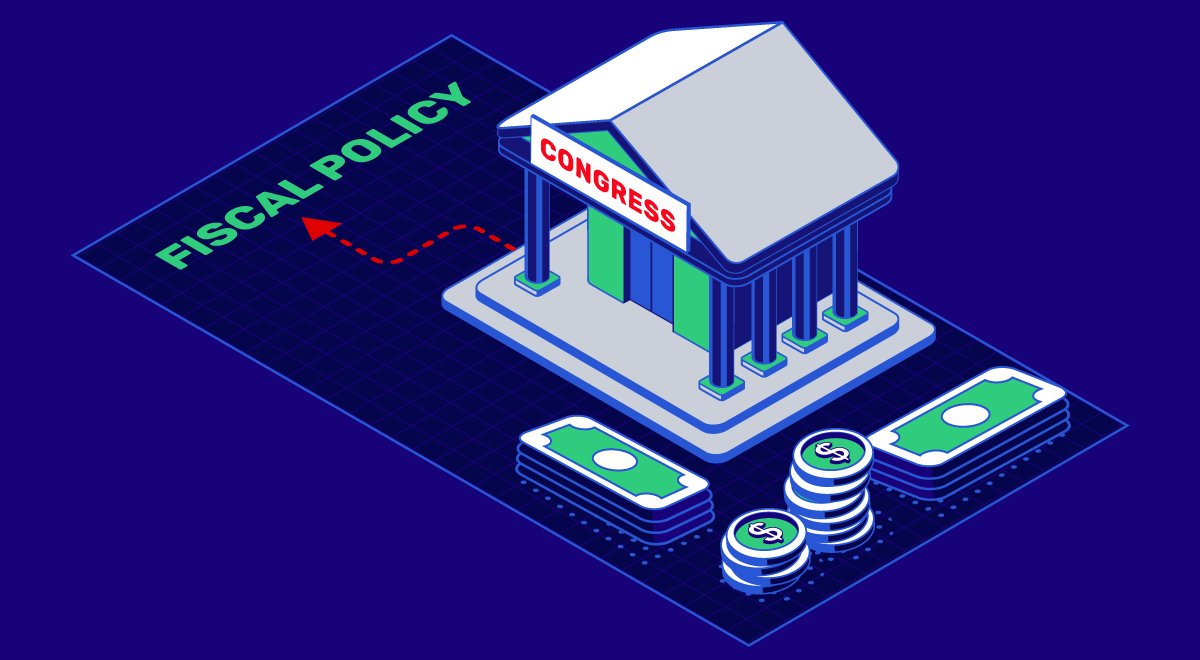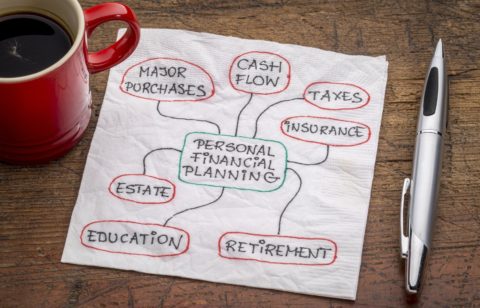You hear the term “fiscal policy” tossed around a lot, especially in political debates regarding taxes, a new budget bill, or the amount of influence the government has in the economy. The ultimate goal of a fiscal policy is to maintain a stable and successful economy. Economic success is determined by gross domestic product (GDP) and aggregate demand, as well as the ability to increase these measurements in a sustainable manner. Fiscal policy affects not only the economy but the lives of all Americans, making planning out a fiscal policy one of the most important and complex processes.
What is a fiscal policy and how does Congress determine these policy decisions?
What Is a Fiscal Policy?
Fiscal policy is the adjustment of government tax rates and spending levels to influence the country’s economy. In the United States, it is determined by the executive and judicial branches of the government. Used in conjunction with monetary policy, which involves the banking system, a fiscal policy uses expansionary or contractionary policy to guide and stabilize the country’s economy. It aims to reach its goal by changing these three factors:
Business tax policy: This is government taxes paid by businesses. This affects profits and amounts spent on business investments.
Government spending: This increases aggregate demand.
Individual taxes: These are taxes on an individual’s income, capital gains from investments, property, sales, and estates and gifts. Changes to individual taxes affect personal income, as well as how people put their money back into the economy.
A fiscal policy, as we see it today, came after the Great Depression, which stopped the laissez-faire approach to economic management. It aims to maintain high rates of employment, increase economic growth, stabilize prices and wages, limit inflation and interest rates, and increase aggregate demand.
Types of Fiscal Policy
A fiscal policy is split into two types: expansionary and contractionary.
The expansionary is a form of a macroeconomic policy that’s used to stimulate economic growth by cutting taxes, increasing government spending, or both. The goal is to put more money into consumers’ hands so that they put that money back into the economy. Consumers spending more money also stimulate job growth by boosting aggregate demand. This is often a hot topic of debate in politics. Some say supply-side economics is more effective because tax cuts allow businesses to hire more workers from an increase in demand. Others rally for demand-side economics and that spending more (for example, unemployment benefits and food stamps) is more beneficial than cutting taxes.
Contractionary fiscal policy is used to battle inflation and slow down economic growth. Less money is put into the economy by raising taxes and reducing government spending. This type is rarely used.
How Congress Plans a Fiscal Policy
Fiscal policy is closely tied to the annual federal budget. The federal budget for the fiscal year is planned by the president and Congress to determine government spending, as well as plan how to fund it. The president submits an annual budget proposal to Congress with detail about the budget plans and goals. Congress and the presidential administration further develop and review the budget together.
In the budget, Congress goes over necessary spending on public needs, such as homeland security, national defense, transportation, education, and healthcare, as well as how much should be collected in taxes and how much of a deficit or surplus is expected. Mandatory spending is excluded, such as Medicare and Social Security, which is spent automatically. Once these are reviewed and approved, thus begins the appropriations process. This process addresses the distribution of the budget. Once this is completed, the president must sign the appropriations bills before they are officially enacted.
Understanding Fiscal Policy
People often complain about taxes and government spending, but they’re vital to the growth and management of the economy. Tax rates and government spending have an impact on the economy over long periods, and a fiscal policy implemented today affects future generations of taxpayers and businesses.





